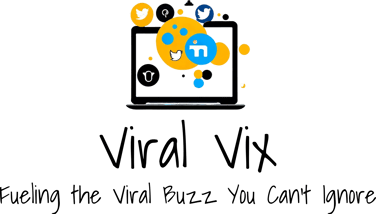Mastering Emotional Intelligence in the Workplace – Improve Communication and Leadership
In today’s dynamic and collaborative work environments, emotional intelligence (EI) has become a cornerstone of effective communication and leadership. Often described as the ability to recognize, understand, and manage emotions—both your own and those of others—emotional intelligence is a skill that can set you apart in the workplace. Mastering EI not only improves your professional relationships but also enhances team performance, reduces conflicts, and fosters a positive work culture. Here’s a guide to understanding emotional intelligence and actionable steps to develop and apply it in the workplace.
LIFESTYLE & PERSONAL GROWTH
Yogi B
1/9/20253 min read


What is Emotional Intelligence?
Emotional intelligence is typically broken down into five core components:
Self-Awareness: Recognizing and understanding your own emotions and their impact on your thoughts and behavior.
Self-Regulation: Managing your emotions, staying in control, and adapting to changing circumstances.
Motivation: Being driven by internal goals and maintaining a positive attitude, even in the face of challenges.
Empathy: Understanding and considering the emotions and perspectives of others.
Social Skills: Building and maintaining healthy relationships, communicating effectively, and managing conflicts.
Why Emotional Intelligence Matters in the Workplace
Emotional intelligence is crucial for creating a thriving workplace environment. Here’s why it matters:
Improved Communication: High EI fosters open and honest dialogue, reducing misunderstandings.
Stronger Leadership: Emotionally intelligent leaders inspire trust, motivate teams, and navigate challenges with composure.
Better Collaboration: Teams with emotionally intelligent members work together more effectively and resolve conflicts constructively.
Enhanced Decision-Making: EI helps you manage stress and make rational, informed decisions rather than reacting impulsively.
Increased Job Satisfaction: A workplace that values emotional intelligence often experiences higher morale and employee engagement.
How to Develop Emotional Intelligence
Improving your emotional intelligence is an ongoing process. Here are actionable strategies to build and strengthen each component of EI:
1. Cultivate Self-Awareness
Reflect on your emotions and identify triggers that influence your behavior.
Practice mindfulness or meditation to stay present and observe your emotional state.
Seek feedback from colleagues to gain insight into how your actions affect others.
Pro Tip: Keep a journal to track your emotions and their impact on your daily interactions.
2. Practice Self-Regulation
Take a pause before reacting to stressful situations to ensure a measured response.
Develop healthy coping mechanisms, such as deep breathing or stepping away momentarily.
Set clear boundaries to manage work-life balance and avoid burnout.
Pro Tip: Use tools like habit trackers to monitor and improve your emotional responses over time.
3. Stay Motivated
Set personal and professional goals that align with your values.
Celebrate small wins to stay motivated during challenging projects.
Focus on the bigger picture when faced with setbacks to maintain resilience.
Pro Tip: Create a vision board or use visualization techniques to keep your goals front and center.
4. Build Empathy
Actively listen to colleagues without interrupting or formulating a response prematurely.
Show genuine interest in others’ perspectives by asking open-ended questions.
Recognize nonverbal cues, such as body language and tone of voice, to understand emotions better.
Pro Tip: Practice role-playing exercises to put yourself in someone else’s shoes and develop empathy.
5. Strengthen Social Skills
Work on clear and concise communication, both verbal and written.
Provide constructive feedback and accept criticism gracefully.
Foster relationships by showing appreciation and building trust with team members.
Pro Tip: Regularly engage in team-building activities to strengthen interpersonal connections.
Applying Emotional Intelligence in Leadership
Leaders with high emotional intelligence are often the most effective because they create a positive, collaborative, and resilient team environment. Here’s how to integrate EI into your leadership style:
Inspire Trust: Be transparent, consistent, and approachable to build trust among your team.
Motivate Others: Recognize and celebrate your team’s efforts, providing encouragement and support when needed.
Resolve Conflicts: Address disagreements calmly, ensuring all voices are heard and finding solutions that work for everyone.
Adapt to Change: Lead by example by staying flexible and composed during times of uncertainty.
Pro Tip: Conduct regular one-on-one check-ins with team members to build rapport and address concerns proactively.
Benefits of Emotional Intelligence in the Workplace
Mastering emotional intelligence offers numerous benefits, including:
Higher Team Performance: Teams led by emotionally intelligent leaders achieve better results and meet goals more efficiently.
Reduced Workplace Stress: Understanding and managing emotions create a more supportive and less stressful environment.
Improved Conflict Resolution: Empathy and social skills help navigate disagreements constructively.
Career Advancement: High EI is often associated with better leadership opportunities and career growth.
Conclusion
In the modern workplace, emotional intelligence is no longer optional; it’s essential. By mastering EI, you can improve communication, foster stronger relationships, and become a more effective leader. Remember, emotional intelligence is a skill you can develop with time and practice. Start small, stay consistent, and watch how it transforms your professional life.
What steps will you take today to enhance your emotional intelligence? The journey begins with self-awareness and the commitment to grow.
